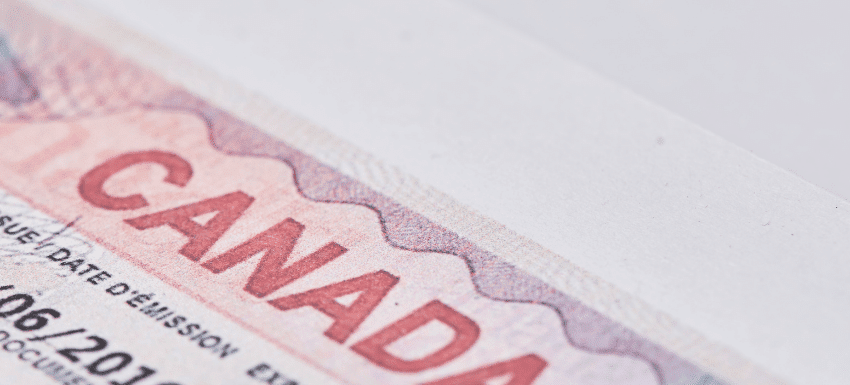Canada is one of the countries that allow overseas students to stay back after finishing their studies, which is great news. In fact, Canada’s educational system encourages students to apply for jobs and stay in the country after graduation, which is made possible by the post-study work visa.
With a Post-Graduation Work Permit in Canada, you will be able to stay for up to three years and then apply for permanent residency. Canada’s world-class educational system opens the path for strong jobs, higher compensation, and a high level of living. So, if you are a graduate of a Canadian university and intend to apply for a work permit after completing your studies in Canada,
Why Apply for a Post Graduation Work Permit in Canada?
Before we get into the specifics of what the PGWP is, Canada stay back time, the many sorts of work permits, and so on, it’s important to understand why overseas students seek a post-study work visa in Canada:
- Canada has a low unemployment rate of roughly 6%, making it an attractive area for job searchers and recent graduates to start their careers.
- When you live in Canada, one of the world’s most prosperous countries, there are no limits to your ability to grow. The country offers a diverse range of opportunities in industries such as engineering, business, healthcare, and education, all of which can help you enhance your career.
- Canada is home to several top companies that offer lucrative packages such as Cisco Systems, Google, Microsoft, Nike, FedEx, GlaxoSmithKline, Sephora, Intel, etc.
- One of the biggest benefits of applying for a PGWP Canada is that it allows you to stay in the country permanently.
- PGWP is a fantastic method to gain significant work experience and apply classroom information in real-world circumstances in Canada.
Let us take a look at the types of work permits that you may need to work in Canada.
Types of Work Permits in Canada
Work permits in Canada allow international students to reside and work in the country, and there are two types of work permits available after completing a master’s degree:
- Work Permits for Specific Employers
- Work Permits That Are Available
Employer-Specific Work Permits
With this sort of work permit, you will be able to work within the conditions set forth in your work permit, which include:
- Your employer’s name
- How long can you work for? Where can you work?
A foreign person who holds one of these permits can only work for one employer and in one capacity.
Open Work Permits
This work visa allows you to work for any employer in Canada, with the exception of those that are designated as ineligible owing to a failure to meet the requirements.
An Open Work Permit is available to an international student who has graduated from a designated learning institution (DLI) and is qualified for a work permit in Canada after completing their master’s degree. An open work permit is an example of the PGWP.
What is Post Graduation Work Permit Canada and Who is Eligible for It?
After graduating from a designated learning institution (DLI) with a certificate, diploma, or degree, you can live and work full-time in Canada with a Post-Graduation Work Permit (PGWP). As a result, you are free to work in any occupation you want in Canada, even if it is unrelated to your program of study. After finishing their studies in Canada, an applicant is only eligible for one work permit in their lifetime.
To apply for a Post-Graduation Work Permit in Canada, you do not need a job offer, but you must meet certain requirements. Students must meet the following requirements to be eligible for a post-graduation work visa in Canada:
- Within 180 days of earning their degree or diploma, transcript, or formal letter from school, they applied.
- Graduated from a designated learning institution (DLI) such as a public post-secondary institution, such as a college or university, a trade or technical school, or a CEGEP (in Quebec).
- a private Quebec post-secondary institution that functions similarly to public universities in the province.
- a qualifying program of 900 hours or more at a private/public secondary or
- post-secondary school in Quebec that leads to a diploma of vocational studies (DVS) or
- an attestation of vocational specialization (AVS) that can be less than 900 hours if paired with a DVS.
- a private Canadian institution that is permitted by provincial legislation to issue Associate, Bachelor’s, Master’s, or Ph.D. degrees.
- Attended a qualifying institution for an academic, vocational, or professional training program that lasted at least 8 months and resulted in a degree, diploma, or certificate.
- Throughout each academic session of the program, maintained full-time student status while studying in Canada.
- Received a transcript and an official letter from the DLI stating that you’ve completed the program.
Special Eligibility Cases:
Even if they do not meet the qualifications above, students may be eligible for a PGWP in Canada in certain specific circumstances. These are some of them:
- If they completed a study program in less time than the program’s regular length
- Students have been granted permission to take a break from their studies.
- Students are transferred from a non-DLI to a DLI, and they must spend at least 8 months at the DLI.
- If the study program includes a component in another country, but the students receive credit from a Canadian institution.
How Long is a Post-Graduation Work Permit Valid For?
A Post-Graduation Work Permit in Canada is valid for anywhere between 8 months to 3 years. The actual length depends on the length of your program at a Canadian DLI. IRCC provides the following guidelines on its website:
- Completed program under 8 months: Not eligible for a PGWP
- Completed program between 8 months and less than 2 years: The PGWP will be valid for the same length of your study program (e.g., a 10-month program will result in a 10-month PGWP)
- Completed program of 2 years or more: PGWP will be valid for 3 years
- Completed more than one program: You may be able to combine your Canadian educational programs to get a PGWP as long as the programs are DLI eligible and each over 8 months in duration. The total length of the PGWP will correspond to the durations above.
How to Apply for PGWP in Canada?
Applications to apply for a PGWP in Canada can be submitted online as well as offline.
Take a look at the general steps to be followed:
- Visit the official Government of Canada immigration and citizenship website.
- Create a new account and select the type of work permit that you want to apply for.
- Complete and submit the form by filling in correct information.
- Provide biometric details and pay the application and biometric fees.
- Prepare and attach the documents mentioned in the next section.
- You may have to appear for an interview with the officials and provide any additional information asked for.
You will receive a letter allowing you to work in Canada once your work permit has been approved. If you are applying for a work permit outside of Canada, you will need to show this letter to the officials in order to acquire your work permit.
Documents Required to Apply for PGWP in Canada
Here’s a checklist of Post-Graduation Work Permit in Canada requirements to complete the application process:
- Proof of identities, such as a valid passport or travel document, allows you to return to the country that issued it.
- Two current images of yourself and any accompanying family members to meet the photograph requirements for the post-study work visa application.
- Proof of employment demonstrating that you are qualified for the position.
- Proof of completion of your program of study, such as a final transcript and a supporting letter from the institution or a graduation announcement.
- If you wish to work in Quebec, bring a copy of your Certificat d’acceptation du Québec (CAQ) from the Ministère de l’Immigration, de la Diversité et de l’Inclusion (MIDI).
- Depending on the situation, proof of kinship for accompanying family members may include a birth certificate, marriage certificate, or Statutory Declaration of Common-Law Union (IMM 5409).
- Documents that are not issued in English or French must be accompanied by a certified copy of the original document plus an English or French translation.
- A biometric collecting service point, appears to offer biometric information such as your fingerprints and photos.
It’s a good idea to have any supplementary documentation requested by the competent visa officer on hand.
When Should I Apply?
You can only apply once you’ve received your Letter of Completion, which confirms that you’ve fulfilled all of the program’s prerequisites. The date on which your Letter of Completion becomes available differs from the day on which your degree, diploma, and graduation ceremony are conferred.
Further studies
In Canada, a Post-Graduation Work Permit is only awarded once in a lifetime. While having both a PGWP and a study permit is permissible, if you intend to continue studying in Canada, you should apply after you have completed your second program to make the most of your work permit. If both programs are eligible for the PGWP, you can apply based on the length of both, as long as the second program is completed within two years of the first.
How do I get my Letter of Completion?
You may need to apply for graduation, request your letter, or it may be automatically issued, depending on your faculty or program.
Your Letter of Completion will usually be accessible soon after you finish your last program.
Contact an Academic Advisor or Graduate Program Staff if you’re unsure when your Letter of Completion will be available or how to seek or obtain it.
After you’ve completed all of the program’s criteria, make a habit of checking every day to see if your Letter of Completion, which states that you’ve completed all of the program’s requirements, has become available, and save a copy when you first view it. Unless one of the following applies, you must stop working as soon as your Letter of Completion becomes available:
- You apply for your PGWP right away, and you must do so with a valid study permit within 90 days of program completion (see “Can I Work While Applying for PGWP?” below).
- You are starting a new program of study and meet all of the requirements.
You have a limited amount of time after your Letter of Completion becomes available to apply for the PGWP.
Within 90 Days After Your Letter of Completion Becomes Available
Before your study permission expires, apply.
If your study permit expires before your Letter of Completion becomes available, or during the first 90 days after your letter becomes available, but you won’t have enough time to apply for your PGWP before it expires, ask for a 90-day bridging period extension. Apply as soon as possible, preferably four months before your study permit expires. Include a letter explaining why you’re extending your study permit in order to apply for the PGWP.
One of the conditions for being qualified to work full-time after completing your PGWP application online is having a valid study permit at the time of application.
Within 180 Days After Your Letter of Completion Becomes Available
Even if your study permit expires many months later, your study permit becomes invalid 90 days after your Letter of Completion becomes available.
If you do not apply for a Post-Graduation Work Permit (PGWP) within 90 days of receiving your Letter of Completion and a valid study permit, you must:
- Change your status to the visitor and apply for the PGWP from within Canada, either at a visa office that serves your country of citizenship or at a visa office that serves your country of citizenship.
- Exit Canada and apply for the PGWP from another country.
You must apply for the PGWP within 180 days of receiving your Letter of Completion, whether you live inside or outside of Canada. Your study permit must have been valid for at least 180 days prior to applying for a work permit, which means you may be able to apply for the PGWP sooner than 180 days after receiving your Letter of Completion.
If you haven’t submitted an immigration application or if you haven’t left Canada before your study visa expires, you should seek assistance from your university’s relevant department.
Applying for PWGP from outside Canada:
From outside of Canada, international students can apply for a PGWP. You can still apply for a work visa from your native country or any other country if you return home after finishing your studies. Depending on the visa office that handles the application, extra documents may be asked.
What is the PGWP’s Application Deadline?
The deadline to apply for a Post-Graduation Work Permit is 180 days (six months) after receiving a transcript and an official letter from a qualifying DLI certifying that all program requirements have been satisfied.
Candidates have two alternatives if their study permission is set to expire before the results are available:
- To stay in Canada longer, apply for a visitor record; or
- depart Canada and apply for the PGWP.
Applicants must show that they have a valid study permit, have held a study permit, or were authorized to study in Canada without the need for a study permit under the Immigration and Refugee Protection Regulations, paragraphs 188(1)(a) and (b).
Working After You’ve Applied
If at the moment you submit your PGWP application online, you meet the following criteria, you may immediately begin working full-time while your application is being processed:
- You have a valid study permit and applied within the first 90 days after your Letter of Completion became available, and
- You have completed your program of study, and
- You were eligible to work off-campus without a work permit during your studies, but not for more than 20 hours per week during academic sessions.
If you seek a study permit extension while in implied status, you will not be permitted to work in Canada until you get a valid Post-Graduation Work Permit (PGWP). Alternatively, you could wait for your study visa to be approved before applying for the PGWP, and if you match the above conditions, you’ll be permitted to work after submitting your application as long as you apply within 90 days of program completion.
Prepare your PGWP application in advance to avoid a gap in work eligibility between receiving your Letter of Completion and applying for the PGWP. This way, you can apply as soon as your letter is ready. If you apply on the same day as your letter, you will be able to work constantly.
Move Forward With AG Group!
Take steps to secure your and your family’s future by moving to Canada! Post-Graduation Work Permit in Canada is one of the most critical steps one can take for a stable and guaranteed future life in Canada and is one of the most important life-changing decisions one can make. FOr your and your family’s future, apply as soon as possible!
It is natural to be confused if you are applying for a Post-Graduation Work Permit in Canada since it would be the first time you would have seen any such document. In order to smoothly complete your application, hire AG Group Enterprise Inc. We have been providing immigration help & advice for over a decade and have the skills and knowledge required to help you through the ordeal.
With the AG group’s help, you can ensure a stable and secure future for you and your family.







